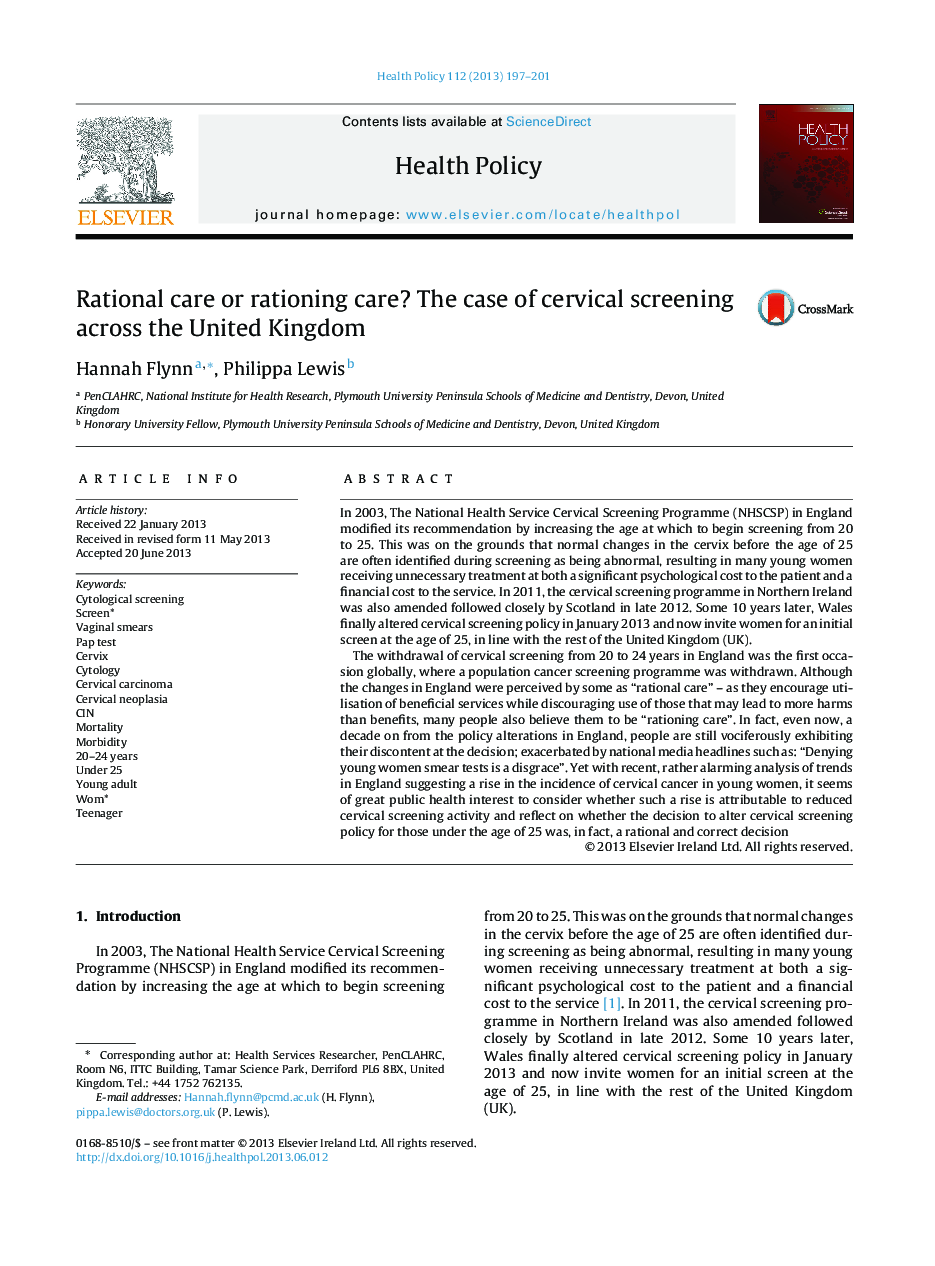| Article ID | Journal | Published Year | Pages | File Type |
|---|---|---|---|---|
| 6239945 | Health Policy | 2013 | 5 Pages |
In 2003, The National Health Service Cervical Screening Programme (NHSCSP) in England modified its recommendation by increasing the age at which to begin screening from 20 to 25. This was on the grounds that normal changes in the cervix before the age of 25 are often identified during screening as being abnormal, resulting in many young women receiving unnecessary treatment at both a significant psychological cost to the patient and a financial cost to the service. In 2011, the cervical screening programme in Northern Ireland was also amended followed closely by Scotland in late 2012. Some 10 years later, Wales finally altered cervical screening policy in January 2013 and now invite women for an initial screen at the age of 25, in line with the rest of the United Kingdom (UK).The withdrawal of cervical screening from 20 to 24 years in England was the first occasion globally, where a population cancer screening programme was withdrawn. Although the changes in England were perceived by some as “rational care” - as they encourage utilisation of beneficial services while discouraging use of those that may lead to more harms than benefits, many people also believe them to be “rationing care”. In fact, even now, a decade on from the policy alterations in England, people are still vociferously exhibiting their discontent at the decision; exacerbated by national media headlines such as: “Denying young women smear tests is a disgrace”. Yet with recent, rather alarming analysis of trends in England suggesting a rise in the incidence of cervical cancer in young women, it seems of great public health interest to consider whether such a rise is attributable to reduced cervical screening activity and reflect on whether the decision to alter cervical screening policy for those under the age of 25 was, in fact, a rational and correct decision
